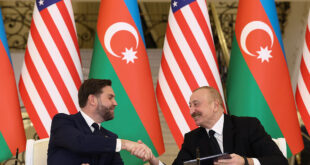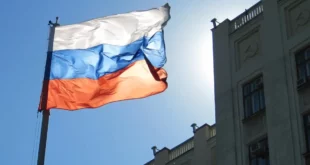The Soviet Union’s former KGB chief Vladimir Kryuchkov, one of Russia’s most influential hardline spy masters, has died aged 83, Russia’s foreign intelligence service said on Sunday.Kryuchkov was fired as head of the KGB in 1991 for taking part in a failed coup against Mikhail Gorbachev that hastened the collapse of the Soviet Union.
He died in a Moscow on Friday after a long illness.
Kryuchkov rose swiftly through the KGB after serving in Hungary to become head of its first department, the Soviet Union’s foreign intelligence service, from 1974 to 1988.
As Moscow’s chief spymaster, he was a key supporter of the 1979 military intervention in Afghanistan and one of Moscow’s most influential hawks.
Gorbachev made him chief of the whole KGB in 1988, but he was sacked for taking part in the August 1991 coup.
Along with other coup plotters, Kryuchkov felt that Gorbachev’s reforms were threatening the very foundations of the Soviet Union.
But the coup weakened Gorbachev and played into the hands of Boris Yeltsin, thus speeding the fall of the Soviet empire. The KGB chief was arrested with other hardliners and put on trial for high treason.Â
He remained an enemy of Gorbachev and former Russian President Yeltsin for life, branding them traitors and blaming them for the collapse of the Soviet Union.
After leaving the KGB, he spent much of his time at a country cottage outside Moscow but made sometimes scorching attacks against the United States in newspaper interviews.
Russian media said the former general sometimes gave advice to President Vladimir Putin, who served as a Soviet spy in East Germany while Kryuchkov was head of the KGB.
Kryuchkov praised Putin for restoring Russian influence and was a frequent guest at Kremlin spy galas under Putin, who brought back former security service officers to key positions in the Kremlin.
Born in the southern Russian city of Volgograd, he rose through the local Communist party and then studied in a Soviet diplomatic academy before working from 1954 to 1959 at the Soviet embassy in Hungary.
In Hungary he served alongside Ambassador Yuri Andropov, who would later head the Soviet Union, and played a role in the 1956 Soviet crackdown against anti-Communist protesters in Budapest.
Kryuchkov’s biggest failure was the defection to Britain in 1985 of Oleg Gordievsky, the highest ranking KGB defector in its history.
Gordievsky was spirited out of Moscow by British agents from under the noses of KGB counter-intelligence.
Kryuchkov’s last major public announcement was to warn Russian security services that a conflict between rival groups could lead to “big trouble” and urged feuding clans to unite around Putin.
 Eurasia Press & News
Eurasia Press & News



